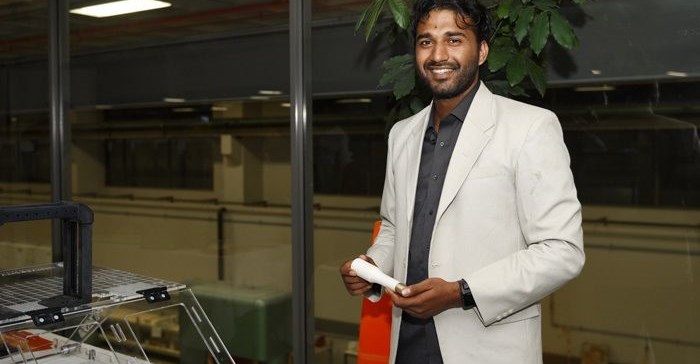
Top stories






More news

















Logistics & Transport
Uganda plans new rail link to Tanzania for mineral export boost








Auto-injectors are life-savers for people with allergies that result in anaphylactic shock, but the most popular brand currently on the market - the single EpiPen® could set you back R6,000, which is completely unaffordable for many South Africans. Moreover, the injector cannot be reloaded or refilled and expires every 12–18 months.
Developed by biomedical engineering master's student, Gokul Nair, along with Associate Professor Sudesh Sivarasu, senior lecturer in the Division of Biomedical Engineering and Associate Professor Michael Levin, head of the Division of Asthma and Allergy at the University of Cape Town (UCT), the local device - called the ZibiPen - costs around R200.
Current devices in the market are also unintuitive and are based on the size of an average male which could pose problems for children, women and the obese. The ZibiPen can be customised for any patient with needle length and dose calculated by clinicians and set by pharmacists. This simple step is going to make this device more clinically effective, as well as more affordable.
One of the main challenges was developing a device that could exert a force of around 200 newtons, about 20 kilograms, in a small device. But the team managed to develop an effective patent pending spring-based system configuration.
“Here you have a technology which can be very easily made accessible to the middle- and low-income group as well. But it is not made so because of business reasons, and also because the [current] technology doesn’t support it," says Sivarasu.
The ZibiPen was recently recognised in the Emerging Medical Innovation Competition at the Design of Medical Devices Conference, where it placed second and was awarded a full technical and market evaluation by the Medical Industry Leadership Institute (MILI), valued at R180,000.
The competition is open to all technologies with potential to create an impact in the healthcare space. The inventors were up against stiff competition, including state-of-the-art technologies, some fully developed and already out in the market, others addressing complex medical problems.
Research Contracts and Innovation at UCT partnered with the innovation team at a very early stage and has facilitated the intellectual property protection and commercialisation of the technology.